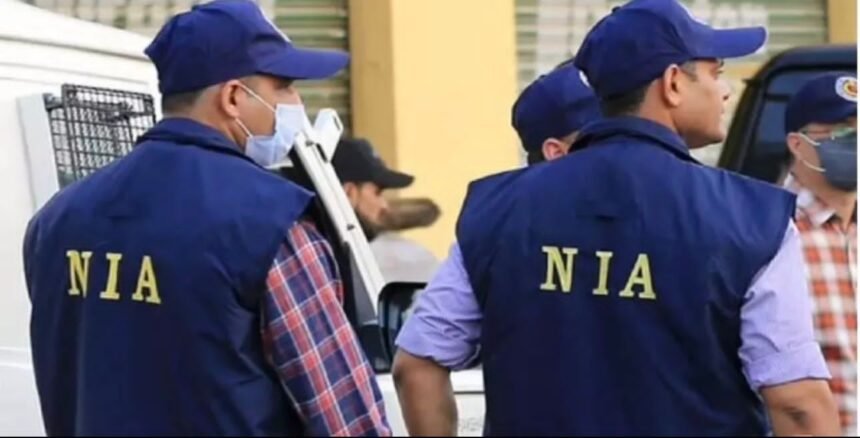Ashok Kumar and Vikas Kumar Sentenced to 5 Years 11 Months in Pakistan-Linked Navy Espionage Case
Asif Iqbal Naik | Jammu Nov 25:
In a major development in the Pakistan-backed Visakhapatnam Navy Espionage Case, the National Investigation Agency (NIA) has secured the conviction of two more accused—Ashok Kumar of Jhunjhunu district, Rajasthan, and Vikas Kumar of Alwar district, Rajasthan. Both have been awarded five years and eleven months of Simple Imprisonment by the NIA Special Court, Visakhapatnam, under Section 18 of the Unlawful Activities (Prevention) Act and Section 3 of the Official Secrets Act. The court also imposed a fine of ₹5,000 on each convict, with an additional one year of imprisonment in case of default.
The case, originally registered in 2019, concerns a Pakistan-based espionage network that systematically targeted Indian Navy personnel through honey-trapping, social engineering, and online manipulation. The handlers operated fake female social media profiles, posing as defense enthusiasts, journalists, or women seeking friendship. They lured sailors into private conversations, ultimately convincing them to share sensitive information related to deployment of Indian naval ships, submarine movements, and other operational details around critical installations, especially along the Eastern Naval Command headquartered in Visakhapatnam.
The NIA took over the investigation in December 2019 and re-registered the case as RC-05/2019/NIA/HYD. It arrested 15 individuals across the country. Ashok Kumar was apprehended from Mumbai while Vikas Kumar was arrested from Karwar. The agency filed its main chargesheet against fourteen accused in June 2020, followed by a supplementary chargesheet in March 2021 against one more accused. With today’s conviction, a total of eight accused have now been convicted and sentenced, marking steady progress in dismantling the network.
Earlier six accused, including several Navy personnel, had already been convicted for leaking classified operational information after being honey-trapped by ISI-linked operatives using WhatsApp, Messenger, and VoIP calls. Investigation revealed that the data sought by handlers was aimed at mapping India’s naval preparedness and deployment patterns in the Bay of Bengal region. Pakistan-based agents such as those operating under the aliases “Preeti Sharma,” “Anjali Christian,” and other fake identities coordinated the espionage effort, often routing communications through international numbers to conceal origin.
The NIA has established that the conspiracy was orchestrated by ISI-linked modules operating from Pakistan, using digitally enhanced honey-trap techniques to compromise lower-rank personnel. The handlers deliberately targeted sailors who were active on social media and susceptible to online friendship requests, offering money, gifts, or emotional manipulation to extract sensitive information.
The Visakhapatnam espionage case is not the only attempt by Pakistan’s ISI to target Indian security forces. Since 2014, multiple individuals—both civilians and uniformed personnel—have been arrested across India for spying on behalf of Pakistan. Several cases involved individuals from Hindu and Sikh communities, indicating that ISI modules did not limit recruitment to any religion and instead focused on financially or emotionally vulnerable individuals. Arrests in Rajasthan, Punjab, Delhi, Madhya Pradesh, and Gujarat over the last decade showed a recurring pattern: honey-trap, fake social media accounts, and money transfers through hawala channels.
India has also witnessed earlier Navy espionage cases, including the 2015–2016 crackdown in which several naval personnel across Western and Eastern Naval Commands were arrested for leaking operational details after being enticed online by ISI-linked female profiles. In 2018, the Nagpur module targeting defence staffers was similarly uncovered. The current Visakhapatnam case, however, is considered one of the largest coordinated espionage crackdowns by the NIA in recent years in terms of spread, digital sophistication, and interstate involvement.
The trial of the remaining accused in the present case is ongoing. The NIA continues its efforts to identify the entire chain of Pakistan-based handlers who orchestrated the espionage operation aimed at undermining India’s unity, integrity, security, and sovereignty. With eight convictions now secured, the agency asserts that it is steadily closing in on the full conspiracy behind the international spy network.









